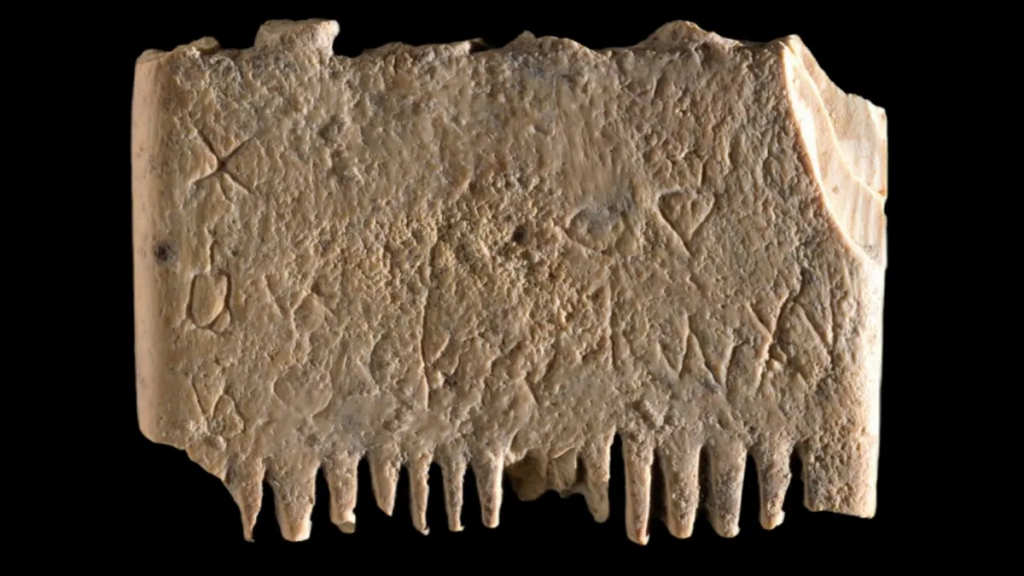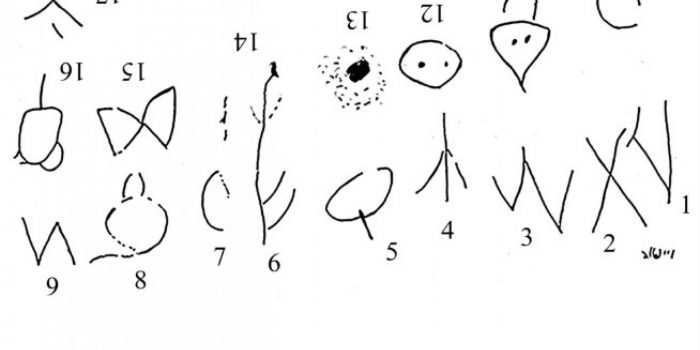A press release published on November 8 has revealed the oldest written sentence of time. The study is published in the Jerusalem Journal of Archaeology. It comprises a Canaanite phrase from around 1700 BCE (before the current era).
The phrase is engraved on a head-lice comb. They have decoded the sentence as, “May this tusk root out the lice of the hair and the beard,” which they think might be a spell.
The team was led by Professors Yosef Garfinkel, Michael Hasel, and Martin Klingbeil, a team from the Hebrew University of Jerusalem (HU) and Southern Adventist University in the United States discovered the comb at Tel Lachish in Palestine.

“This is the first sentence ever found in the Canaanite language in Israel. There are Canaanites in Ugarit in Syria, but they write in a different script, not the alphabet that is used today. The Canaanite cities are mentioned in Egyptian documents, the Amarna letters that were written in Akkadian, and in the Hebrew Bible,” shared Professor Yosef Garfinkel.
“The comb inscription is direct evidence for the use of the alphabet in daily activities some 3700 years ago. This is a landmark in the history of the human ability to write.”
The Canaanites were the first to use the alphabet.
The interpreter (epigrapher) of the study explained that the lice were the third of the ten plagues of Egypt that were also inflicted upon Canaanites.

The piece was excavated in 2017 by Dr. Madeleine Mumcuoglu who didn’t see the letters until after post-processing in 2022. Miriam Lavi cleaned and preserved it.
The team thoroughly studied the comb for the presence of lice and photographed both sides. On the second tooth, 0.5-0.6 mm head lice remains were discovered. However, the environmental circumstances in Lachish did not allow for the preservation of full-head lice, only the exterior chitin membrane of the nymph stage head louse.


